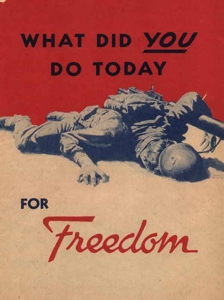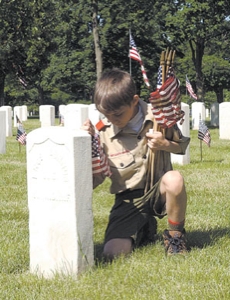In conversation with my parents today, who have now read my post about the World War II Memorial, revealed additional details of which I was unaware.
In the Second World War, my grandfather and his two brothers served in the military.
My grandfather, James Strawser, who died long before I was born, served in the Army in a construction unit in Europe.
His brother, Roy Strawser, whom I don’t believe I ever met, served in the Navy and was a survivor of Pearl Harbor.
His brother, Glenn Strawser, whom I knew well growing up in Covington, joined the Marines and fought in the Pacific. Glenn died when I was a teenager. I remember some fishing trips with him at Sugar Mill Lake in rural Fountain County, Indiana.
Their sister, AnnaRose, married Guy Smith, who served in the Army in Europe. Guy passed away when I was a teenager as well.
Guy’s brother Jim Smith, who was my next door neighbor growing up, served in the Army in Europe and wound up married to a German woman, Lottie Smith. Jim retired from the Army as a Master Sergeant. He is in a hospital today, facing a terminal illness.
My parents have added all of their information to the World War II Memorial Registry, because, as my father said, “I felt it was the right thing to do.. they deserve their due”
Indeed… while I knew of my grandfather’s service and that of my neighbor Jim Smith, I knew nothing of these other relatives.
And this is just one sampling of my own small family in my own small corner of Indiana.

